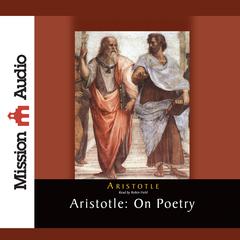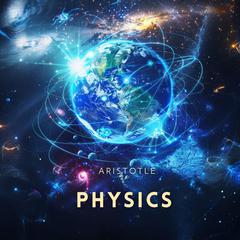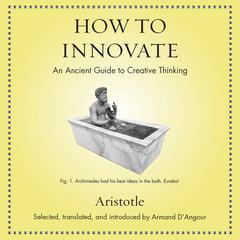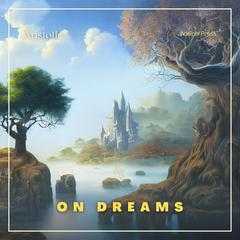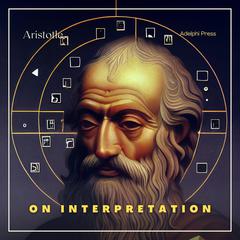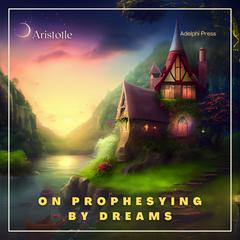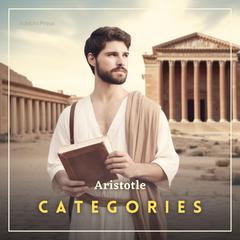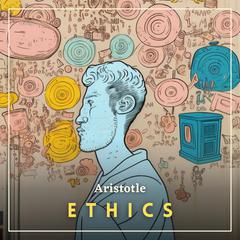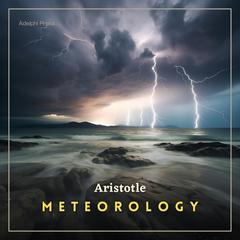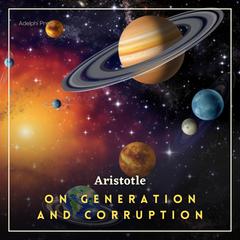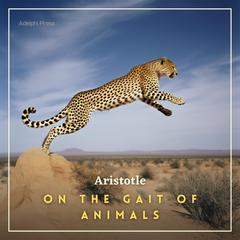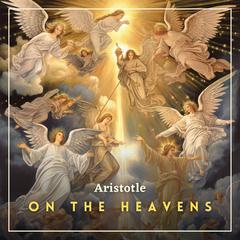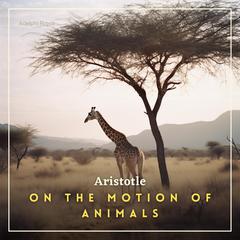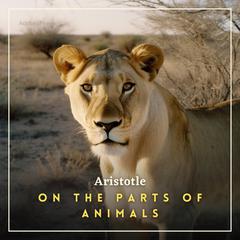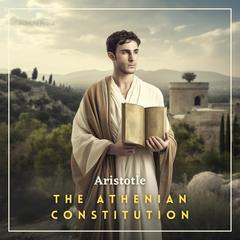 Play Audiobook Sample
Play Audiobook Sample
Nicomachean Ethics Audiobook
 Play Audiobook Sample
Play Audiobook Sample
Quick Stats About this Audiobook
Total Audiobook Chapters:
Longest Chapter Length:
Shortest Chapter Length:
Average Chapter Length:
Audiobooks by this Author:
Publisher Description
Aristotle's Nicomachean Ethics, said to be dedicated to Aristotle's son Nicomachus, is widely regarded as one of the most important works in the history of Western philosophy. Addressing the question of how men should best live, Aristotle's treatise is not a mere philosophical meditation on the subject, but a practical examination that aims to provide a guide for living out its recommendations. The result is a deep inquiry into the nature and means of attaining happiness, which Aristotle defines as consisting not merely of pleasure or an emotional state, but of a virtuous and morally led life. This edition is the translation by W. D. Ross.
Download and start listening now!
"One of the most important books I've ever read. Anyone who thinks Aristotle is extraordinarily difficult to read, check out this book. Nicomachean Ethics addresses the simple (or not so simple) question, "how should one live on this planet?" Although you probably won't agree with every assertion (I didn't), a reader can't help but grow around the astute framing of the relevant questions. I esp. love the last section on contemplation."
— RandomAnthony (5 out of 5 stars)
Nicomachean Ethics Listener Reviews
-
" A veritable manual for happiness. "
— JB, 2/15/2014 -
" An excellent, albeit dry, primer on how the rational man/woman derives his/her virtue. I love this book! I can hardly recommend it though, for its difficulty level. Aristotle does not have the charisma or communication skills of his predecessor Plato. That makes Aristotle something of an acquired taste. But if one can get past the superficial obstacles, Aristotle and his lessons on virtue will wow you beyond expectation. "
— Kris, 2/9/2014 -
" You know, ethics. The usual. "
— Shannon, 2/7/2014 -
" This book is probably worth much more stars. Gave it two for the difficulty that this book is. One of the core books of philosophy and an exceptional read. It is astounding how what Aristotle wrote years ago still stands as the basis of European philosophy "
— Shaeri, 2/3/2014 -
" As with the Republic, I did not understand or appreciate this as much as I should have in Ancient Political Thought. It will need a reread in the near future. "
— Jacob, 2/2/2014 -
" Ethics between individuals. Mind your manners. "
— Shin, 2/2/2014 -
" Wow a tough one to get througt, I felt a lot of the time aristotle talks in circles. Did some soul searching with this one. great ethical Outlook on the happy life! "
— Andrea, 1/28/2014 -
" The classic work in Virtue Ethics. The virtuous man finds the mean between two extremes. Anybody studying philosophy should have a thorough understanding of this text. The Cambridge edition has a fantastic translation. I tend to go straight to Cambridge editions for classics such as this one. "
— John, 1/27/2014 -
" A foundational work, without a doubt. "
— Brittany, 1/21/2014 -
" This was a textbook for an ethics class but I keep going back to it just for fun. "
— Kenji, 1/20/2014 -
" I read this work during high school on my own and was compelled to read it in the university. Going through it the first time, I was deeply impressed by Aristotle's praise of human thought and the contemplative life. Furthermore, his claims that Ethics is a practical science are particularly illuminative, and Aristotle refuses to "loose touch" with reality. Finally, Aristotle's attempts to develop our moral principles from a series of premises is very striking and relevant to our own activities. However, his argument is not without its difficulties. For one, it gets off to a bad start. In essence, Aristotle's first statement reads something like this: For everything, there is a good to which it aims. Therefore, there is a good to which everything aims. Not so. For example, in elementary arithmetic, I can't say: for every number, there is a number bigger than it. Therefore, there is a number bigger than all numbers. The conclusion is patently false, while the premise holds. Aristotle's inference is unjustified. Related to this difficulty is his view that "doing what you are 'natural at' constitutes 'the good'." Hence, a good flute player is one who plays the flute well. Ok, so suppose it were the essence of man to pick his nose. Then picking the nose at the expense of everything else would be "good," and other things, like helping people and suchwhat, are inferior acts. Granted this is based on the assumption that picking the nose is man's essence, as far as I know man is the only animal that picks his nose. Since Aristotle considers uniqueness a sufficient justification for making reasoning the essence of man, a life spent exclusively in picking the nose seems just as ethical as the contemplative life. And perhaps unbenounced to us human reason evolved to perfect the art of nose picking, which held some tremendous evolutionary advantage for man. Or if whoever decides what an "essence" should be shows up and tells us our essence is to pick our nose. In all these cases, I'd rather not think of "picking of the nose" as the highest ethical act and reject Aristotle. Nevertheless, Aristotle's approach to ethics as a deductive and practical science is illuminating when we all think about what the good life really could be for ourselves. "
— Kenghis, 1/16/2014 -
" for me, reading the part on A's virtues is almost like reading a "self-help" book. v. inspiring. ALSO, Aristotle's view of the good life is still terribly important and relevant in today's world. I think it is, at least. "
— Pamela, 1/15/2014 -
" My favorite part of this book and what I come back to read here and there is the portion about the various levels of friendship. What's the highest form of friendship to strive towards? "
— Andrew, 1/15/2014 -
" Complex and really, really confusing, but also thoughtful and illuminating. "
— Minli, 1/9/2014 -
" A book I think every human being needs to read. A book our secondary students should be required to read, at least once. Whatever happened to ethics education? I'm not talking about indoctrination. Just training them to keep the question of "What's the right thing to do?" in mind at all times. "
— Adam, 1/3/2014 -
" Aristotle gives an exhaustive explanation of how do act and live virtuously. "
— Andrew, 12/29/2013 -
" re- read this guy also with thought. Can you say Telos or teleology? Try Zoon Politikon? "
— Bill, 12/13/2013 -
" How do you rate the book which has been a foundation for much of philosophical thought ever since it was written? "
— Jeff, 12/9/2013 -
" I HOPE TO ONE DAY UNDERSTAND WHAT ENERGIA REALLY MEANS. "
— Jeremiah, 12/7/2013 -
" Happiness achieved thru living life of virtues, what is the natural law of things, what is love verses bitterness and anger, pride verses humility, truth verses falsehood, virtue and vice as voluntary, live by passions and perhaps much error. "
— Don, 12/6/2013 -
" If you're going to read the Nicomachean Ethics, this is the translation to get. Bartlett and Collins have rendered a fresh, readable text, with just the right amount of notes and useful tools. "
— Kyle, 11/22/2013 -
" This is a wonderful book. Our modern understanding of the moral man comes from Aristotle. "
— Natalie, 11/19/2013 -
" Much of medieval thought can be traced to this book. Parts are very profound, but other parts make you think, "Boy did he get it wrong!" "
— Rob, 11/19/2013 -
" One of my favorites. Often marked as conflictive, I feel it's actually straight forward. I agree on many fronts on Aristotle's ethics, such as the golden mean and eudaimonia, and would like to examine its contexts compared to other religions/philosophers. "
— Nick, 11/5/2013 -
" More of a manual than anything else on what aristotle sees as 'virtue'. Fascinating if nothing else. "
— (a)lyss(a), 11/5/2013 -
" Really fun to teach, and it of course informed my own perceptions of virtue and friendship. Greatly appealed to my logical brain, which is always wrestling with my over-emotional heart. "
— Abby, 11/5/2013 -
" I especially enjoyed the last few books with regards to different friendships. "
— Candice, 11/3/2013 -
" Tough but great read for philosophy students... "
— Erk, 10/28/2013 -
" I can't abide some of Aristotle's ideas, but you also can't help but see the foundation of our whole society in his ideas. When people tell you to look 'outside the box', they're talking about the boxes that Aristotle created. That's a bit of a thing. "
— Lenna, 10/14/2013 -
" Aristotle is highly observant, and, as such, can be very perceptive. It makes me want to read more of his stuff. "
— Christopher, 6/4/2013 -
" it was a very difficult read for me, but what sensible and brilliant philosophy! :) "
— Melissa, 5/20/2013 -
" A large part of this SHOULD serve as the basis for elementary, middle, and high school education on civics and how living the "good life" is one that also leads to living life as a good citizen. But that's just my opinion. What say you? "
— Bob, 4/21/2013 -
" Greek translation instead of Latin. Very readable, with excellent explanation of definitions. "
— Eric, 4/5/2013 -
" I had to read this book in college and hated it! To use a description used by a previous reviewer, it was probably the most pompous and presumptuous book I have ever read. "
— Laurin, 12/5/2012 -
" A veritable manual for happiness. "
— JB, 11/27/2012 -
" I enjoy the ethical theory and discussion on ends and means but, on the whole, it was a hard to get through. "
— James, 9/19/2012 -
" Aristotel makes here some very good points, some that astound the "modern" reader because of its "modernity" and some are a testimony to his good psychological insight! "
— von, 7/25/2012 -
" What is the good in and of itself then? "
— Francisco, 5/27/2012 -
" There's a reason why this book has been raved about for thousands of years. Pretty much what I live my life by. "
— Ideen, 4/28/2012 -
" There's a reason why this book has been raved about for thousands of years. Pretty much what I live my life by. "
— Ideen, 1/29/2012 -
" Complex and really, really confusing, but also thoughtful and illuminating. "
— Minli, 12/1/2011 -
" Just started it for class but so far so good. Its a slow read but interesting "
— Ashley, 8/28/2011 -
" You know, ethics. The usual. "
— Shannon, 8/9/2011 -
" I had to read this like four times during college and high school. Did not really care for it after having to keep revisiting it. "
— Huma, 5/30/2011 -
" I had to read this like four times during college and high school. Did not really care for it after having to keep revisiting it. "
— Huma, 5/30/2011 -
" As with the Republic, I did not understand or appreciate this as much as I should have in Ancient Political Thought. It will need a reread in the near future. "
— Jacob, 5/16/2011 -
" As with the Republic, I did not understand or appreciate this as much as I should have in Ancient Political Thought. It will need a reread in the near future. "
— Jacob, 5/16/2011 -
" Well, of course it's brilliant--it's Aristotle. That said, it brings up some interesting questions as far as intention goes, and I dare say that it sheds both light and shadows on Ari's influence on modern Virtue Ethics. "
— Megan, 2/20/2011 -
" Well, of course it's brilliant--it's Aristotle. That said, it brings up some interesting questions as far as intention goes, and I dare say that it sheds both light and shadows on Ari's influence on modern Virtue Ethics. "
— Megan, 2/20/2011 -
" Amazing investigation about what it means to have the best possible life. I'm glad I did last semester's course. After having read the Ethics two times before by myself it now came alive in full bloom. "
— Willem, 1/16/2011 -
" Amazing investigation about what it means to have the best possible life. I'm glad I did last semester's course. After having read the Ethics two times before by myself it now came alive in full bloom. "
— Willem, 1/16/2011 -
" This book is a must for anyone interested in philosophy and particularly ethics. This should be the starting point for any study of virtue ethics. It's important to find a good translation. My favorite is the David Ross translation. "
— Sarah, 1/9/2011 -
" This book is a must for anyone interested in philosophy and particularly ethics. This should be the starting point for any study of virtue ethics. It's important to find a good translation. My favorite is the David Ross translation. "
— Sarah, 1/9/2011 -
" The Golden Mean, the highest form of happiness, amongst many other foods for thought. Not your typical boring passé philosophy book. Many of his ideas still apply. "
— Miquixote, 12/16/2010 -
" The Golden Mean, the highest form of happiness, amongst many other foods for thought. Not your typical boring passé philosophy book. Many of his ideas still apply. "
— Miquixote, 12/16/2010 -
" I really should read this again. I hear it's fantastic, and I feel like I missed a lot of it, given that it was a rush-rush school assignment. "
— Elizabeth, 9/13/2010 -
" I really should read this again. I hear it's fantastic, and I feel like I missed a lot of it, given that it was a rush-rush school assignment. "
— Elizabeth, 9/13/2010 -
" The kind of book that you need to read and read again, and after a while you find it filled with stick notes. <br/>You need to be in the right mood to read this book. "
— Solady, 9/8/2010 -
" The kind of book that you need to read and read again, and after a while you find it filled with stick notes. <br/>You need to be in the right mood to read this book. "
— Solady, 9/8/2010
About Aristotle
Aristotle (384–322 BC) was a Greek philosopher, scientist, and physician. As a young man, he became a student under Plato in Athens. In 342, he became the tutor of young Alexander the Great in Macedonia. After that, Aristotle returned to Athens to establish his own school and research institute, the Lyceum. His writings have profoundly affected the whole course of philosophy, from ancient times to the present.
About Michael Prichard
Michael Prichard is a Los Angeles-based actor who has played several thousand characters during his career, over one hundred of them in theater and film. He is primarily heard as an audiobook narrator, having recorded well over five hundred full-length books. His numerous awards and accolades include an Audie Award for Tears in the Darkness by Michael Norman and Elizabeth M. Norman and six AudioFile Earphones Awards. He was named a Top Ten Golden Voice by SmartMoney magazine. He holds an MFA in theater from the University of Southern California.






